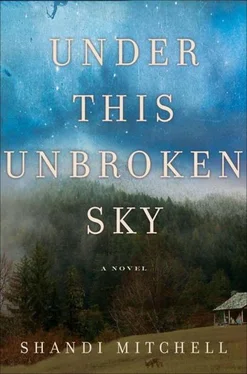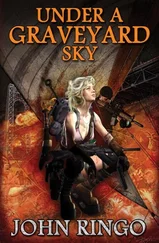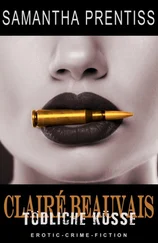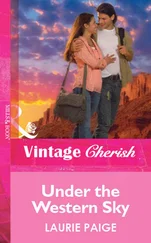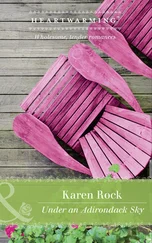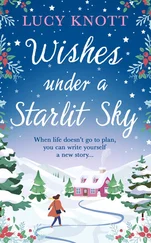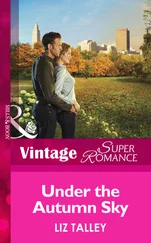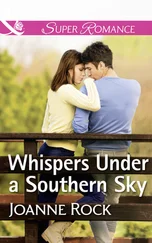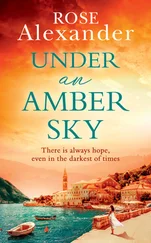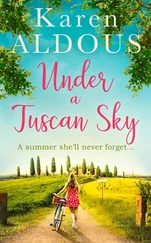Anna’s baby is due in two weeks. She’s had no word from her. If something happens to the baby, she’ll blame herself. She should have gone to Anna, disobeyed Teodor’s decree. She needs someone with her. It’s his brother-in-law that Teodor’s at war with. Wars are always with men. The men fight and the women mourn. Tomorrow, she’s going to see Anna and end this war. They’ll talk as mothers, daughters, sisters. They’ll make peace for their families. This land is too big to be alone in.
It is well after midnight, the day is over, but still the bad feeling nags her. Everyone is asleep. They have food for tomorrow. The fire is burning. They have a house and a barn, and come next summer, she’ll buy more chickens and hopefully a pig. She’ll put the garden out front, facing south, so she can see it from her window. She’ll get the boys to put up a fence to keep out the rabbits and deer… and the pig. She’ll sit in her rocker and watch it grow. There will be a new child. Teodor will break another six acres, maybe eight, and with the harvest money they’ll get a wagon and another horse. Next year everyone will have new coats.
The chair creaks again. The even sounds of her family’s breathing continue undisturbed. She worries too much. She has to learn to trust. Trust that her family will be taken care of. Trust that this is their home now. Maria leans forward in the chair. She cocks her ear, unsure if she has heard anything. She closes her eyes. She listens past the breath of her house, past the crackling of the fire, through the window’s glass.
“Teodor?” Maria shakes him awake. “I hear a rabbit crying.”
HAVING FALLEN ASLEEP SO EARLY, TEODOR NOW FEELS that it should be morning. But it must be only three or four o’clock. A million stars curtain the sky. Teodor finds Pivnichna zoria, the midnight star. One of the guardian trinity, along with Rannia zoria, the morning star, and Vechirnia zoria, the evening star, that guard the chained dog from eating the little bear. If the chain ever breaks, the world will end. Teodor wonders if all the stars have names. He can’t imagine anyone spending their entire lives looking up, mapping, and categorizing all the seeds of light. He searches for recognizable shapes—the bear, the dog, the three leaps of the deer—but the star animals elude him.
He shifts the rifle from his shoulder to the cradle of his arm. He yawns, though he feels wide-awake. The brisk cold fills his lungs. He pulls the warmth of his leather jacket closer and hunkers deeper into the sheepskin lining. He tried to convince Maria that she had imagined the sound, that it wasn’t possible to hear anything that far away. But she wouldn’t be dissuaded, even after he took her outside and they stood on the stoop and heard nothing at all. The more he pointed out the improbability, the more distressed she became until she was on the verge of tears. He told her he would check.
He still hasn’t told her about Stefan or Petro. What will he tell her? That the son of a bitch is gone? For how long, this time? Until next month, the spring, next harvest? He won’t be back until winter is over. He’s like a magpie chasing after shining bits of rubbish, feeding on the carcasses others fought and died for. Teodor spits. At least it’s one less mouth to feed.
Maria will want to bring Anna to their place until the baby is born, but Teodor doesn’t want her in the house. She signed the letters, even if she didn’t write them. He stops and lights a cigarette. Inhales the strong tobacco. He exhales to the sky. Above him, northern lights flicker. Ivan says it’s star people. Katya says it’s God. Teodor doesn’t know what it is. A reason to look up. He breathes in deep and the answer comes. It is freedom.
The word makes his throat tighten. Free. Of everything they did to him, it was the walls that nearly drove him mad. Not being able to see the sky. They tried to break him by breaking his body. Animals can be broken that way. They become husks of skin and bones. He saw it under Stalin. He saw it in prison, so many hollow, empty eyes. But some beaten animals become fiercer. Their eyes burn wild. They die before they submit. But still, they die. Staying alive requires remembering what it means to be alive. Still, he almost broke. It was the walls. When they left him alone. When he had nothing to fight; nothing to hate; nothing to defy. Five steps—wall, five steps—wall. They took away the sky.
But look at it now.
Shoosh, shoosh, shoosh. He smiles at the sound of his boots on the snow. He is not counting his steps. He loves being the only one walking through the night. The snow catching the moon’s reflection casts a blue-white sheen. He doesn’t feel small in this vastness. He feels as if he can expand as far and wide as he can see. He breathes deeper out here, walks taller. This is where they’ll bury him. Under this unbroken sky.
He can see the outline of the stone wall, gray-white, slashing the night. The dividing line, his and hers. This stone wall will stand for a hundred years and a hundred more after that. Long after the buildings rot and the scrub grows wild. Someday someone will walk through this field and see the stones worn and pocked with time, sunken into the earth. They’ll walk the line, run their hand over the rounded stones, and wonder, Who put these here? Maybe they’ll pick up a rock and marvel at its weight. Try to imagine how long it took to build. Wonder, Why is it here?
Teodor chuckles. It was just a place to pile the rocks. He listens to his footsteps. Maybe, if he’s honest with himself, he was marking a line, but he never thought he’d need it.
He sees the moon shadow of the first snare. Sixth rock in from the east end. The stiff wire loop propped tight against the base of the stone wall. Empty. No tracks mar the snow’s crust. He shakes his head; he knew there’d be nothing here. The gun swings at his hip, loose and casual as a walking stick. One bullet in the chamber. One more in his pocket, as an afterthought. He runs his hand over the stones, plowing a cap of snow, following the line west. Now that Stefan is gone, Anna will do the right thing. In the spring, they’ll go to the land office together and she’ll sign it over in his name. That will be the end of it. If the weather breaks earlier, they’ll go sooner. It’s not right, them fighting.
They already left one world and one family behind. That’s enough to lose. The day he left Ukraïna, he shook his father’s hand. As he walked away, they both waved a farmer’s wave. A slight, friendly gesture—the universal code for don’t make a fuss, it’s been good to see you, see you around . “Khlib i sil’. Bread and salt.”
He doesn’t even know if his father is still alive. There are no letters and no one from the village has made it to these parts. He can’t remember his father’s face or the color of his eyes, but he remembers his hands. Gnarled and wrinkled, every cord and artery revealing the man. The short, thick nails, the moons ridged with dirt. The crooked left index finger, missing the tip and half a nail. The gouged scar on the left forefinger, beneath the first knuckle. The roughness of his callused palms. He remembers the strength of those hands, crushing his own, as they shook one last time. That was another world. Ten thousand miles away. Now the mile between him and Anna seems so much farther.
The second snare is empty. He is about to turn back when he hears a low grunt and sniff. He listens. Hears a snuffling. He steps closer to the wall and looks over. Not twenty feet on the other side are two coyotes, nosing the ground. They haven’t heard or smelled him, too intent on rooting at something on the ground. Teodor pulls off his glove and slips his finger into the trigger. A decent coyote pelt is worth a dollar. He has two shots. He can get a clear bead on the larger one. Just behind the left ear. The shot will probably scare off the other one.
Читать дальше
